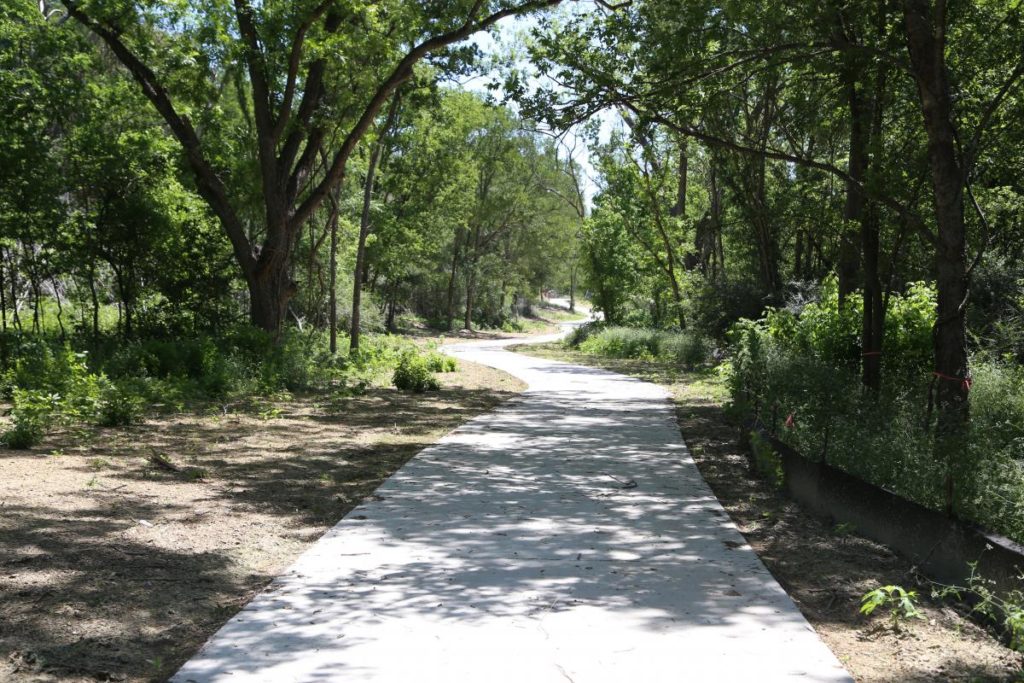The Austin region needs to maintain funding for active transportation, transit, & smart traffic solutions
Everyone who has ever driven through Austin, TX knows that it is not always the easiest city to navigate. Our city roadways seem to be endlessly expanding, with never ending construction zones and traffic. The city’s history of expanding roadways is clearly not doing much to palliate the traffic and roadway confusion that come with aggressive population growth and rising cost of living.
Recently, the Transportation Policy Board (TPB) of the Capital Area Metropolitan Planning Organization (CAMPO) have considered which already-approved projects to cut to divert $600 million in order to rebuild I-35 in central Austin. To do so, there are many worthwhile projects which are at risk of being cut or have already been cut.
Comments are due today, June 1, to comments@campotexas.org. Please take five minutes to put your support for Active Transportation on the record.
The proposed list of projects to cut includes the Northern Walnut Creek Trail (part of the Big Loop), design work for a Red Line Commuter Rail bridge or underpass at North Lamar, safe bicycle and pedestrian infrastructure in San Marcos and Bastrop, and other smart investments to help solve our real transportation and access issues. On the other hand, staff have proposed maintaining funding for some completely unnecessary roadway expansions, like adding feeder lanes across a creek on the 183A toll road.
Lack of safe access to walking, biking, and using wheelchairs is a severe problem across the Austin region – a regionally significant problem that should be at the top of our regional priorities. Even fully funding the proposed Active Transportation projects in Category 7 – the regionally discretionary funding section that the Policy Board is allowed to spend on Active Transportation – would only end up with 7.5% of the total amount of funds that can be maintained in the current plan. The most recent proposed cuts would instead only allocate 4.5% to Active Transportation.
However, the CAMPO Policy Board has a policy of trying to ensure that at least 15% of all transportation funding at the regional level is spent on Active Transportation, and now is not the time to cut back on that vision.
Active transportation improvements are planned across the region, including the E. Hopkins pedestrian, bicycle improvements at San Marcos City Hall, the City of Bastrop River Loop Trail project, the Blake Manor Shared Use Path in Eastern Travis County, and pedestrian and bicycle improvements included with roadway expansions in Williamson County.
Although there are cuts happening to make room for the I-35 expansion, the CAMPO Policy Board should use regionally discretionary funds to maintain all funding for Active Transportation.

In particular, the Northern Walnut Creek Trail is currently proposed to be cut to partially funded, but deserves to remain fully funded and is ready to begin construction soon. When complete which will be part of the Big Loop connecting much of the region’s urban core with a safe shared use path.
The planned Walnut Creek regional trail system is a project that Austin Parks and Recreation Department began working towards over 20 years ago. The trail “provides connections to multiple neighborhoods including, Govalle Park, The YMCA at Hwy 183, Davis White Park, Walnut Creek Greenbelt, The Austin Tennis Center at the Walnut Creek Sports Park and phase I of the Austin to Manor trail system” (austintexas.gov).
The future of Walnut Creek regional trail will be a major East Austin connection to other planned regional trail systems, including the Colorado River and Onion Creek Trails, and will connect in the future to the Northern Walnut Creek Trail that will begin at Balcones Park and connect to the Walnut Creek Metropolitan Park. This project has been through a long planning and design process and is set to begin construction in 2021. The North Side deserves this high quality investment not to be delayed once again. Trails like the Walnut Creek system are a vital part of an accessible region and give residents options for safe multimodal transportation.
For more information about the Walnut Creek Trail system, visit: https://data.austintexas.gov/stories/s/Walnut-Creek-Trail-System/v3dz-djp9/
CAMPO is accepting public comments on the proposed project deferments until Monday, June 1 at comments@campotexas.org. The Policy Board will meet again on Monday, June 8 at 2 p.m. to make a final decision about which projects to defer, when members of the public will have an opportunity to call in and make public comments. CAMPO hosts live streams on their website and their facebook page.
We strongly encourage you to send in your your wants, desires, vision, and needs for the regional transportation system by emailing CAMPO at comments@campotexas.org today, and asking your friends, family, and colleagues to do the same, by the end of the day Monday, June 1.
Follow Farm&City on Twitter and Facebook for more information about how these projects might affect the CAMPO service area.
You can support our work to empower all Texans to meaningfully engage in equitable, sustainable regional planning by donating to our summer fundraising campaign, which is partially funding our team of summer interns, who are working hard right now to provide context and analysis to aid in this decision on which project to defer.




Pingback:Austin’s Long-term transportation investment requires better options than more frontage roads – Farm&City